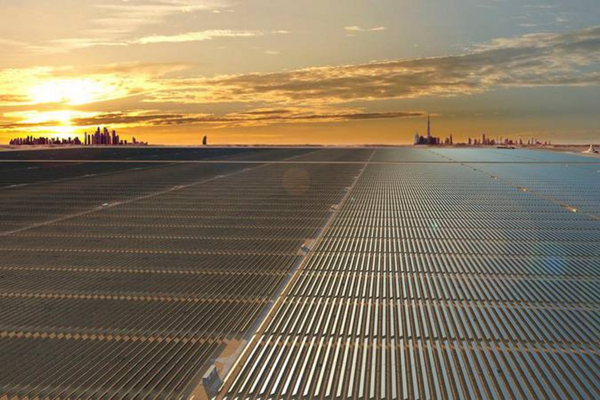Kezad Group, an affiliate of AD Ports Group, and the French energy business TotalEnergies have agreed to investigate solar power generation in their economic zones.
According to the agreement, the companies will carry out several feasibility studies for distributed solar generating at Kezad that span economic, commercial, regulatory, and technical elements.
The agreement was made with TotalEnergies’ Renewables Distributed Generation, which designs and manages solar power systems for commercial and industrial clients.
To boost the emirate’s position as an industry and manufacturing center, AD Ports, the operator of industrial cities and free zones in Abu Dhabi, founded Kezad Group in September. This was done to consolidate and expand its Economic Cities & Free Zones portfolio.
The newly created Kezad Group (Khalifa Economic Zones Abu Dhabi Group), which consists of 12 economic zones with a total area of 550 square kilometers, including 100 square kilometers designated as free zones, has integrated the company’s Khalifa Industrial Zone Abu Dhabi (Kizad) and ZonesCorp (specialised economic zones).
The UAE set the first net-zero aim in the Middle East last year and is currently working to minimise its carbon impact. To become carbon neutral by 2050, the Emirates intends to spend $160 billion on clean and renewable energy sources throughout that time.
It is constructing the five-gigawatt Mohammed bin Rashid Solar Park in Dubai. Abu Dhabi has set a goal of 5.6 gigawatts of solar PV capacity by 2026 and is now building a two-gigawatt solar facility in the Al Dhafra region. The UAE has made significant investments in renewable energy projects in other markets.
Recently, Jordan’s Ministry of Energy and Mineral Resources and Abu Dhabi’s clean energy company Masdar signed a preliminary agreement to develop renewable energy projects in the kingdom, demonstrating Jordan’s commitment to sustainability and decarbonization.
The two organisations will investigate funding for renewable energy projects in Jordan with a maximum of two gigawatts of output capacity. With more than $20 billion in investments across the globe, Masdar is quickly growing its portfolio of renewable energy sources as nations focus on reducing emissions to slow global warming.
After boosting the capacity of its worldwide clean energy portfolio by 40% in 2021, the company inked many new agreements this year to investigate and develop renewable energy and green hydrogen projects.
A framework agreement was reached last week between Egypt and Dubai-based AMEA Power to establish a 1,000-megawatt green hydrogen plant for the creation of green ammonia.
The facility, which will be situated in Egypt’s Suez Governorate, will be able to produce 800,000 tonnes of green ammonia annually for both domestic and international consumption.


